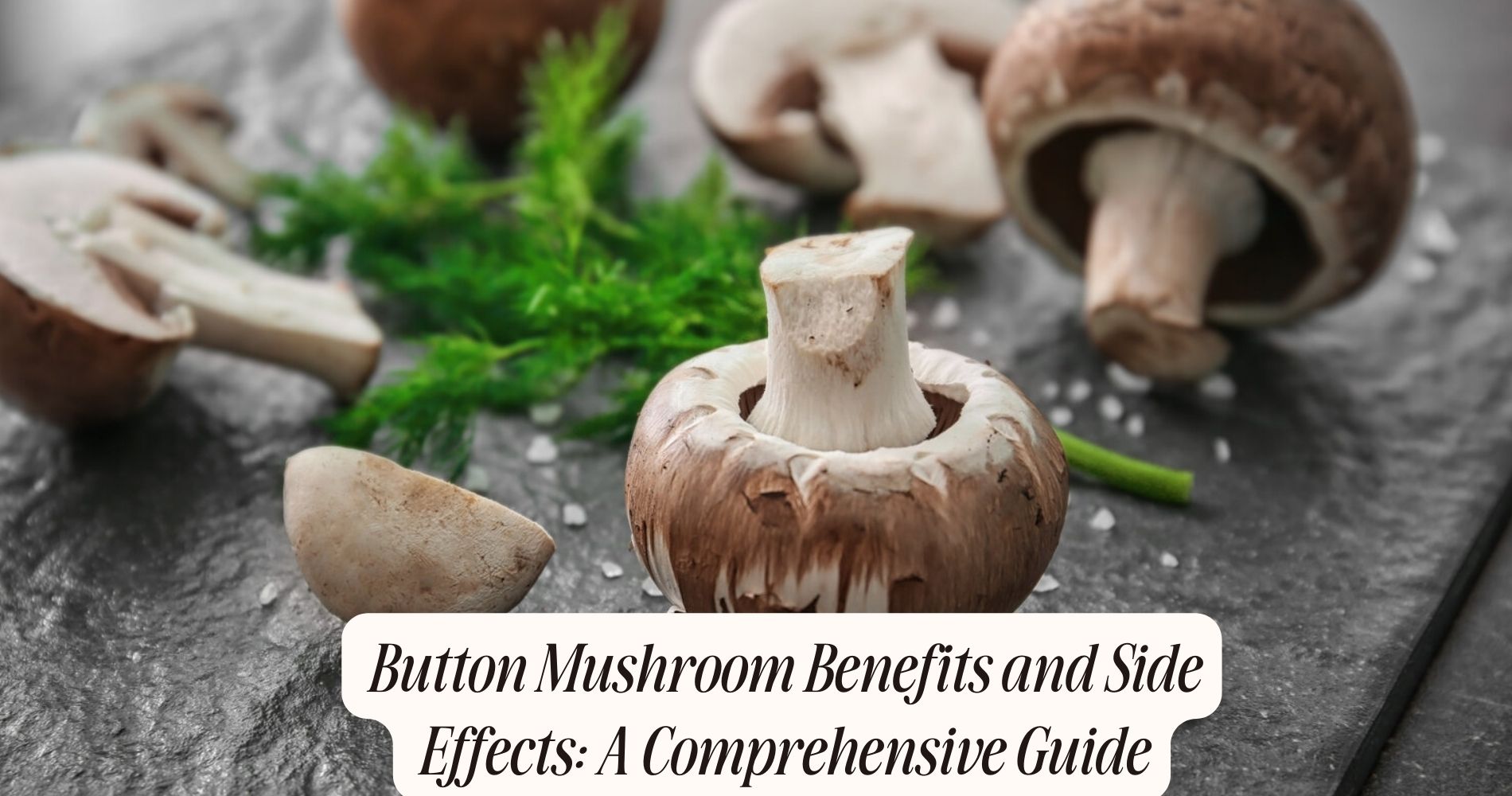
Are Mushrooms Good for Dieting? Weight Management Insights
Are mushrooms good for dieting? Mushrooms are great for dieting due to their low-calorie content and rich nutritional profile. They're packed with B vitamins, essential minerals, and antioxidants, boosting your nutrient intake without extra calories. Their low caloric density allows you to eat generous portions and stay full longer, thanks to dietary fiber and protein. Mushrooms also enhance metabolism through B vitamins and antioxidants, supporting efficient energy conversion. Incorporate them into meals like Portobello burgers or mushroom risotto for a delicious, satisfying way to manage your weight. Keep exploring to discover even more benefits and tasty recipes.
Nutritional Profile
Mushrooms boast a rich nutritional profile, offering a low-calorie source of vitamins, minerals, and antioxidants. When you include mushrooms in your diet, you're tapping into an impressive array of nutrients.
Their vitamin content is noteworthy; they're particularly high in B vitamins like riboflavin, niacin, and pantothenic acid. These vitamins play important roles in energy metabolism and brain health, helping you stay sharp and energized throughout the day.

In addition to their vitamin content, mushrooms are also packed with essential minerals. They offer a high mineral density, providing selenium, copper, and potassium. Selenium acts as an antioxidant, protecting your cells from damage. Copper is essential for maintaining healthy bones and nerves, while potassium helps regulate blood pressure. These minerals are crucial for overall well-being and can contribute significantly to a balanced diet.
Furthermore, mushrooms contain antioxidants such as ergothioneine and glutathione, which combat oxidative stress and may reduce the risk of chronic diseases. Including mushrooms in your meals is a practical way to boost your nutrient intake without adding extra calories.
Low-Calorie Benefits
One of the standout benefits of incorporating mushrooms into your diet is their incredibly low-calorie count, making them an excellent choice for weight management. Mushrooms have a low caloric density, meaning they provide a minimal amount of calories relative to their volume. For example, one cup of sliced mushrooms contains roughly 15 calories, allowing you to enjoy generous portion sizes without greatly increasing your daily calorie intake.
Incorporating mushrooms into your meals can help you manage your weight more effectively. Because of their low caloric density, you can fill your plate with mushrooms and still stay within your caloric goals. This means you can eat larger portions and feel more satisfied while consuming fewer calories overall. It's a practical strategy for those aiming to reduce their calorie intake without feeling deprived.

Additionally, mushrooms are versatile and can be added to a variety of dishes, from salads and stir-fries to soups and omelets. This flexibility makes it easy to include them in your diet regularly. By choosing mushrooms as a low-calorie, nutrient-dense food, you're making a smart choice that aligns with your weight management goals.
Appetite Control
Frequently, incorporating foods that help control your appetite can be a game-changer for effective dieting. Mushrooms are an excellent example, offering significant satiety enhancement. They're rich in dietary fiber, which slows down digestion and makes you feel fuller for longer. This means you're less likely to snack between meals, aiding in hunger regulation.
Mushrooms also contain protein, another key nutrient for satiety. While they aren't as protein-dense as meat or legumes, the protein they do offer can still help curb your appetite. Combining mushrooms with other high-protein foods can amplify this effect, making your meals more satisfying.

Moreover, the umami flavor of mushrooms can trick your brain into feeling more satisfied with fewer calories. Umami has been shown to influence satiety hormones, helping you feel content and reducing cravings for unhealthy snacks. This makes mushrooms an effective tool for keeping your diet on track.
Incorporating mushrooms into your meals is simple. You can sauté them as a side dish, add them to salads, or use them as a meat substitute in your favorite recipes. Doing so can help you manage your hunger more effectively, supporting your overall weight loss goals.
Metabolism Boost
In addition to helping control your appetite, adding mushrooms to your diet can also give your metabolism a significant boost. Mushrooms are low in calories and packed with nutrients that can enhance your body's thermogenic effects, which is the process of heat production in organisms. This increase in thermogenesis can help your body burn more calories, even at rest.
Mushrooms are rich in B vitamins, such as riboflavin, niacin, and pantothenic acid, which play a vital role in metabolic pathways. These vitamins help convert the food you eat into usable energy, making your metabolism more efficient. Additionally, mushrooms contain antioxidants like ergothioneine and glutathione, which can reduce oxidative stress and improve overall metabolic function.

Including mushrooms in your diet can also support your thyroid function. The thyroid gland is essential for regulating metabolism, and mushrooms provide essential minerals like selenium, which is important for thyroid health. By supporting your thyroid, you're ensuring that your body maintains a healthy and active metabolism.
Frequently Asked Questions
Are There Any Potential Side Effects of Consuming Mushrooms Regularly?
Consuming mushrooms regularly is generally safe, but you might experience digestive health issues like bloating. They can also affect nutrient absorption. Make sure to eat a balanced diet to mitigate any potential side effects.
How Do Mushrooms Compare to Other Vegetables for Weight Loss?
Mushrooms outperform many vegetables for weight loss due to their high nutrient density and low caloric content. They provide essential nutrients without adding extra calories, making them an excellent choice for a balanced, weight-conscious diet.
Can Mushrooms Help With Muscle Building During Weight Loss?
Yes, mushrooms can help with muscle building during weight loss. Their protein content supports muscle repair, and their low caloric intake allows you to manage weight effectively while still getting essential nutrients for muscle growth.
What Are the Best Ways to Store Mushrooms to Retain Their Nutrients?
To retain mushrooms' nutrients, store them in a paper bag for proper ventilation and moisture control. Avoid plastic bags, as they trap moisture, causing spoilage. Refrigerate them and use within a week for best freshness.
Are There Any Specific Types of Mushrooms Better for Weight Management?
You should consider shiitake and portobello mushrooms for weight management. They offer excellent portion control and low calorie counts, making them ideal for diets. Their nutrient density supports overall health while helping you manage your intake.
Conclusion
Incorporating mushrooms into your diet can be a smart move for weight management. They're low in calories, help control appetite, and even give your metabolism a boost.
Plus, they're versatile in the kitchen, making it easy to add them to your meals.
So, if you're looking to shed a few pounds or maintain your current weight, don't hesitate to make mushrooms a regular part of your diet. You'll be glad you did!




